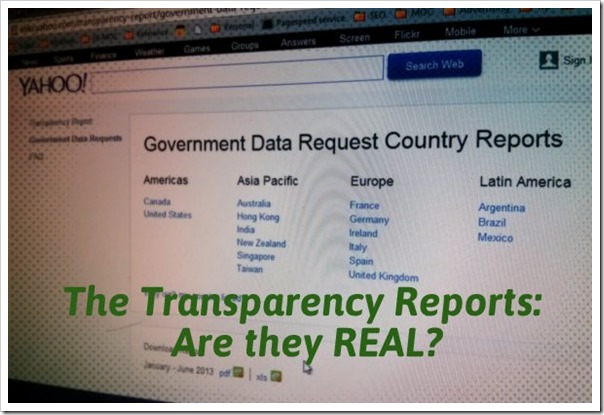The Transparency Reports Aren’t So Transparent After All!
We all have heard how NSA i.e. the National Security Agency of the United States, has been pestering and bullying tech firms to turn over customer information to the government for secret national security investigations.
Now, after the companies were freed by a recent legal deal with government lawyers, the tech firms have released some new data – thousands of Americans’ records have been shared till date!
The tech companies disclosed the number of requests from the Foreign Intelligence Surveillance Court (FISC), the judicial body that authorizes some of the more controversial elements of the NSA’s spying program.
Stung by a series of news reports about government surveillance, based on documents leaked by former National Security Agency contractor Edward Snowden, the companies have been eager to show they hand over users’ data only under narrow circumstances.

Contents
Which companies?
The publications disclosed by Google, Microsoft, Yahoo, Facebook, LinkedIn and Tumblr provided expanded details and some vented criticism about the government’s handling of customers’ Internet data in counterterrorism and other intelligence-related probes.
The figures from 2012 and 2013 showed that companies such as Google and Microsoft were compelled by the government to provide information on as many as 10,000 customer accounts in a six-month period.
How many actually?
These firms stressed details indicating that only small numbers of their customers were targeted by authorities. Still, even those small numbers showed that thousands of Americans were affected by the government requests approved by judges of the secret Foreign Intelligence Surveillance Court.
Complete disclosure?
The companies can only reveal how many total requests they receive every six months, with the numbers in groupings of 1,000. And even those general numbers must be concealed for at least six months after any reporting period ends.
That restriction means the FISA requests for the final half of last year can’t be shared until July, at the earliest. Most of the companies showed the number of government requests fell between 0 and 999 for each six-month period. But the numbers of customers affected by those searches ranged more widely.
The companies are caught between their public commitments to Internet freedom and their enforced roles as data providers to US spy agencies.
Repercussions?
Google and all the other companies denied that they gave any government unfettered access to their users’ info. The online companies are worried more people will reduce their online activities if they believe almost everything they do is being monitored by the government.
A decline in Web surfing could hurt the companies financially by giving them fewer opportunities to show online ads and sell other services.
Google: Google, for instance, has seen the number of people affected by FISA court orders rise from 2,000 to 2,999 users during the first half of 2009 to between 9,000 and 9,999 users during the first half of last year.
The company showed an unusual spike in the number of Americans whose data was collected between July and December 2012. During that period, metadata was collected from between 12,000 and 12,999 users.
Yahoo: Yahoo listed the highest number of people swept up in FISA requests for online content during the first half of last year. The orders seeking user content spanned 30,000 to 30,999 accounts, according to the company. The requested content could have included emails, user accounts, instant messages, address books, calendar items and pictures.
LinkedIn said that it received between zero and 249 national security requests, of all kinds, for content from up to 249 user accounts. Apple reported the same range of numbers last week.
In terms of aggregate requests, Microsoft, Google and Facebook said they each received between 0 and 999 FISA content requests during the first six months of 2013.
Is this all?
We still don’t know what exactly was given up or whether additional data was taken without the companies’ knowledge.
More eavesdropping?
There are worries that the NSA can simply eavesdrop on any communication by tapping directly into fiber cables. The unconfirmed reports supposedly motivated Microsoft, Yahoo and Google to add stronger encryption of their data streams.
Nicely summarized by attorney Nate Cardozo of the Electronic Frontier Foundation, he said the reports are misleading because they don’t cover the government’s other surveillance efforts. “This only shows requests when the government comes to the front door,” he said, adding that the reports provide “a small, slightly blurry snapshot of a much bigger picture.”
Beware! Trying to protect you from terrorism, the Government may actually be doing much more than infringing your privacy!
